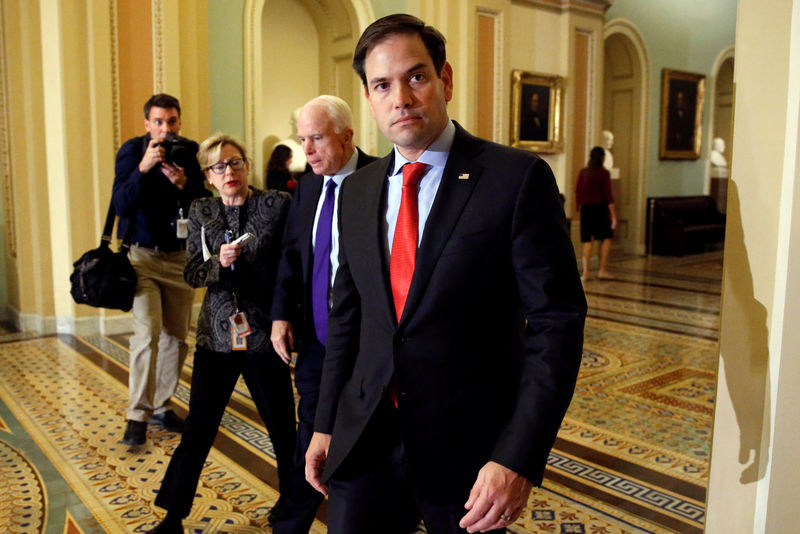By Susan Cornwell
WASHINGTON (Reuters) - Democratic U.S. senators elected Chuck Schumer of New York as minority leader on Wednesday, and he tapped former presidential candidate Senator Bernie Sanders to help Democrats woo blue-collar workers, many of whom voted for President-elect Donald Trump.
Senate Republicans also met and voted to keep Mitch McConnell of Kentucky as the majority leader.
Schumer, 65, replaces the retiring Harry Reid of Nevada as the top Democrat in the Senate as the party prepares to deal with Republican Trump and Republican majorities in both the Senate and House of Representatives.
Schumer said Democrats had learned from the Nov. 8 election that they needed "a sharper, bolder economic message about returning the economic system which so many feel is rigged against them to one that works for the people."
"We're ready to stand shoulder-to-shoulder with Republicans, working with soon-to-be-President Trump on issues where we agree, but we will go toe-to-toe against the president-elect whenever our values or the progress we've made is under assault," Schumer, who has been in the Senate since 1999, told reporters after the Democrats' closed-door election.
In a move recognizing the influence of Sanders with many working-class voters, Schumer asked the independent senator from Vermont to be caucus head of outreach. Sanders, who lost the presidential primary to former senator and secretary of state Hillary Clinton, said his job was to reach out to "grassroots America."
Another liberal, Senator Elizabeth Warren of Massachusetts was given the role of vice chair of the conference while yet another progressive voice, Tammy Baldwin of Wisconsin, was made conference secretary.
Senator Joe Manchin, a more conservative Democrat from West Virginia, was named vice chairman of the Democratic policy and communications committee.
Schumer said he knew there would be differences of opinion on the new team, but that together the group could "speak to the blue-collar worker in West Virginia, and Michigan, as well as the people who live along the coast."
Trump's economic populism helped him flip some once-reliably Democratic areas in blue-collar states while Democrats did better in large urban centers and coastal states.
Senator Dick Durbin of Illinois remained minority whip, the No. 2 spot, while Senator Patty Murray of Washington was chosen as assistant Democratic leader.
In the House, Democratic leader Nancy Pelosi announced she was running for minority leader again and said she already has the support of more than two-thirds of her caucus.

Pelosi, who may face a challenger, agreed this week to delay leadership elections until Nov. 30 after her fellow Democrats called for more time to reassess why they fell short of their goals in the Nov. 8 election.
(additional reporting by Susan Heavey, Rick Cowan and Mohammad Zargham; editing by Grant McCool)